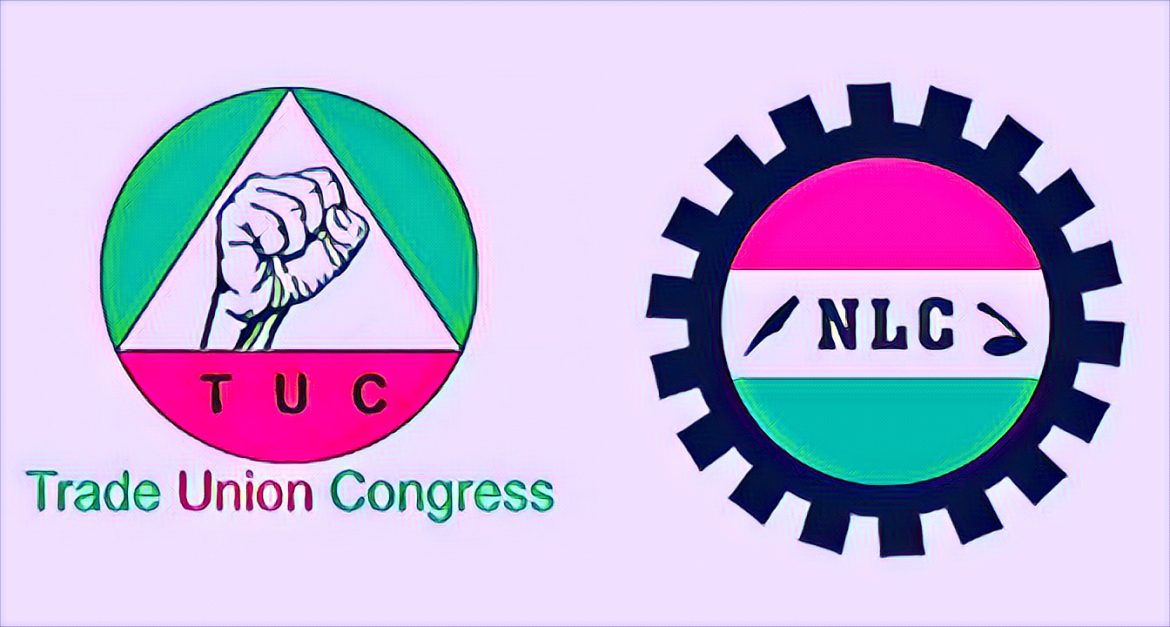Nigeria’s labor unions are escalating demands for a higher minimum wage, intensifying economic pressures. The Nigeria Labour Congress (NLC) and Trade Union Congress (TUC) seek a new wage amid surging living costs, prompting strong reactions from the North Central Citizens Council (NCCC). This development puts the federal government in a challenging position as it navigates public discontent and fiscal constraints.
The NCCC condemned the unions’ demands, labeling them as “unpatriotic” and “unrealistic” given the nation’s current economic difficulties. The organization’s coordinator, Comrade Mohammed Eneji, emphasized the potential negative impact on the broader economy and ordinary citizens. Eneji warned that the labor unions’ actions could exacerbate inflation and unemployment, harming those not on a formal payroll.
“The leadership of the NCCC views the labor unions’ efforts to force the federal government to meet their terms as inhuman and selfish. This will adversely affect common citizens who do not earn a salary,” Eneji said. He stressed that increasing the minimum wage without considering the repercussions could be counterproductive, particularly for rural residents.
State governors are struggling to pay the existing N30,000 minimum wage. The proposal to raise it to N60,000 or higher poses a significant challenge. Many local governments may find it impossible to meet these demands. “The labor movement is not prioritizing Nigeria and its people. NCCC urges the unions to consider the plight of the larger population, especially those not employed by the government or private sector,” Eneji added.
The NCCC also highlighted the potential for increased inflation and unemployment. Raising the minimum wage could lead to job cuts as businesses and government agencies struggle to meet the new pay scale. “The cumulative effect will worsen our problems. States could end up spending 60 to 70% of their revenue on salaries, leaving little for infrastructure and economic development,” Eneji noted.
This situation arises amid ongoing negotiations between the labor unions and the federal government. The unions initially demanded a minimum wage of N615,000 per month, later reducing it to N494,000. The government’s counteroffers started at N48,000, moving up to N57,000, which labor leaders deemed insufficient. The NLC president, Joe Ajaero, argued that workers need N270,000 monthly for food and N110,000 for transportation.
President Bola Tinubu has expressed a willingness to consider a minimum wage higher than N60,000. However, state governors and the private sector must also agree, as the minimum wage affects all employers. The labor strike caused nationwide disruptions, with the national grid shut down, banks closed, and transportation paralyzed. The existing N30,000 minimum wage dates back to President Buhari’s administration, which inherited it from President Jonathan.
In 2018, Buhari pleaded for understanding from labor unions, emphasizing the infrastructural challenges his administration faced. Secretary to the Government of the Federation, Boss Mustapha, echoed these concerns during negotiations, highlighting the difficulties many states face in meeting even the current minimum wage.
The debate over an appropriate minimum wage underscores the broader issue of economic disparity. While labor unions argue that N30,000 is insufficient, the government struggles with budget constraints. Public officials, however, continue to live opulently, which labor leaders cite as evidence of misplaced priorities.
In other countries, senior government officials lead more modest lives. In contrast, Nigerian officials often display wealth and privilege, further alienating the public. Former Governor Peter Obi once revealed that a cow was slaughtered daily at the Government House for visitors, illustrating the excesses in public spending.
Former First Lady Michelle Obama once shared that President Obama paid for all meals served to his family at the White House, highlighting the contrast in public spending practices. In Nigeria, however, such accountability is rare. Professor Itse Sagay once revealed that Nigerian senators earn N29 million monthly, a figure that has not been officially disputed.
Globally, legislators earn significantly less. U.S. senators, for example, make $174,000 annually, while Canadian and German legislators earn even less. The disparity in earnings and lifestyle between Nigerian and foreign officials is stark and fuels public frustration.
As negotiations continue, the potential economic impacts of a new minimum wage are significant. Inflation, job losses, and increased labor market pressures are all concerns. Businesses will need to adjust to higher human capital costs, potentially leading to price hikes and further economic strain.
Ultimately, the debate over the minimum wage reflects deeper issues within the Nigerian economy and governance. Balancing fair wages with economic sustainability remains a complex challenge. The outcome of these negotiations will have far-reaching implications for workers and the broader economy.
Source: The Guardian


